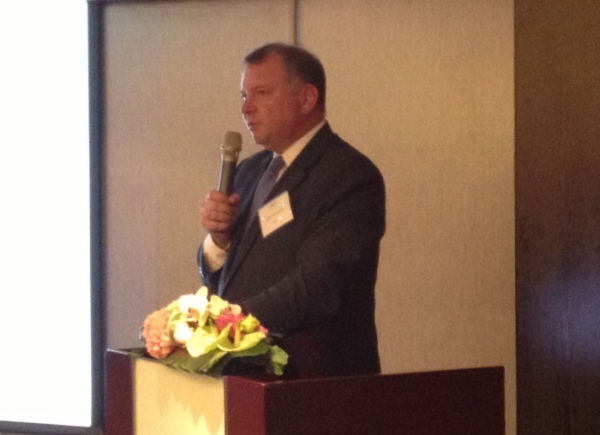ECCT IPR Workshop Series: Part 2

Trademarks are features that that identify products or services as coming from a particular source.
Registration of trademarks is done by territories, meaning that if a mark is not registered for an area, then it may have few or no protections.
Trademarks should be registered in:
1. Countries where you sell goods or plan to sell goods.
2. Countries where you make goods.
3. Countries where your competitors (or infringers) make goods.
Traditionally, words and logos were the most typical trademarks to register. However, non-traditional marks have started to gain greater registrability and use in the market. These can include colours, holographs, sounds, 3D shapes and motion marks.
It is a good idea to file a trademark for Chinese names. There are many advantages including:
To control what your Chinese name is going to be, instead of having your distributors or customers make something up.
Ensuring greater consistency across Chinese-speaking markets.
Avoiding future confusion problems in enforcement.
Reducing the likelihood of other companies free-riding on your name.
Centralized holding of intellectual properties can provide for greater efficiency in handling trademark infringement situations. Powers of attorney for trademark filings, renewals, and infringement litigation may go faster if everybody can go to a central person or department.
Having a registered trademark provides a number of protections:
If somebody has registered or tries to register a mark that is the same or similar to your mark for the same or similar goods, then you can try to invalidate that mark or oppose the application through administrative procedures at the Taiwan IP Office.
If you've got a famous mark, then you get expanded protections that can allow you to take action against companies in unrelated industries who try to "free ride" on your famous brand.
If somebody has registered a mark but has not been using it for years, then you can go for a non-use cancellation. This is one reason to be careful about keeping records about your own trademark use in each country.
There may also be grounds for a complaint to Taiwan's Fair Trade Commission, but that is highly dependent upon the facts of each case.
In Taiwan, trademark infringement is a "public crime," which means that if somebody is selling fakes, then the police, prosecutors and courts should be able to pursue the action to the end. In reality, it is very important for rights-holders to be involved to identify fakes and to monitor the process.
It is normal for rights holders to use private investigators to pull together the basic facts, make sample purchases, and get cases ready for the police to submit to the prosecutors and judges to get approval for a search-and-seizure action.
After a police raid, the rights holder will often need to provide assessment reports to explain how they know that the items are fake. They should be careful how they do this, however. They should not reveal anything that will teach counterfeiters how to make better fakes in future. Rights holders need to keep files to demonstrate the "use" of marks within territories because nearly all countries in the world allow for cancellation of marks if they have not used them for three years. Companies should keep a "fame file" both globally and for each of the countries where it operates regarding how the media talks about its brand. They should also keep track of court decisions where trademarks have been ruled "famous" and copyright records about advertisement photos and related images because parallel sellers regularly use them. This can help to fight against online infringers as well as bricks-and-mortar shops that decorate their stores with companies' photos, logo and names.
